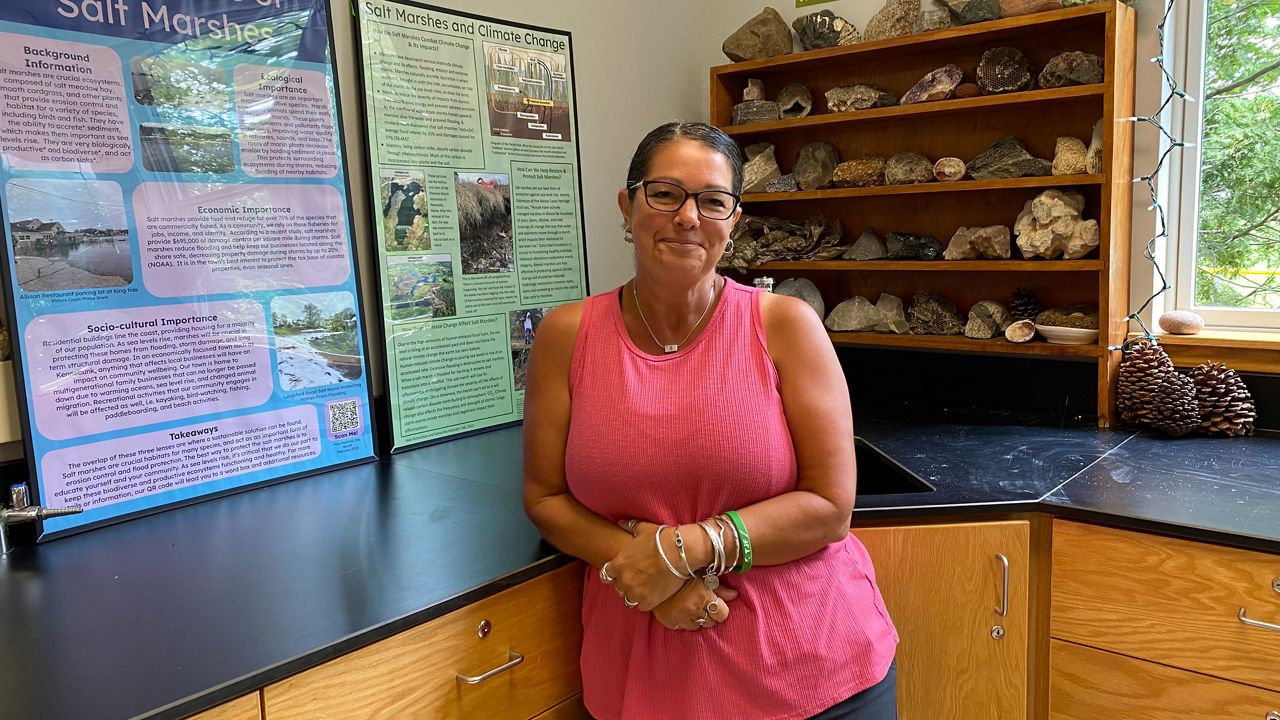High school science teacher Melissa Luetje started focusing more intently on climate change education about five years ago.
With school starting soon, she is hoping a new online resource will help other teachers across the state get easy access to reliable climate change information so they too can use it in their classrooms.
“Teachers don’t have to go looking here, there and everywhere for free and vetted resources,” said Luetje, who spent 20 years at Kennebunk High School before taking a job at Freeport High School this year.
Luetje and other teachers served on an advisory panel for the Maine Climate Education Hub, a new online K-12 platform that will offer ideas for ways teachers can incorporate climate education into subjects they are already teaching.
The hub launched Aug. 15 so teachers heading back to the classroom next week can get the help they need, whether it’s in art, music, math or other subject areas.
The nonprofit SubjectToClimate launched its first state-specific hub last year in New Jersey and this year they are getting off the ground in Maine, Oregon and Wisconsin, said Julia Turner, senior research associate.
“One thing that is important to us is that there’s this climate crisis and we’re sort of handing this next generation of students a problem that’s really, really going to be hard for them to solve,” Turner said. “Hopefully if we educate students in a purposeful way now, they will be the ones who will be able to figure out large-scale solutions for climate change.”
In addition, a separate state-funded program will provide grants to help teachers with professional development in the areas of climate change, the environment and outdoor education, said Teddy Lyman, the state’s climate education specialist.
“This is a really exciting program that will only augment and foster and support the amazing outdoor education and real love of Maine communities that is already present throughout the state,” Lyman said.
The $2 million in funding for the pilot professional development grant program received legislative approval in 2022.
Climate change and efforts to mitigate its impacts in Maine have garnered recent headlines, including the announcement by Gov. Janet Mills in July that the state has already met its goal to install 100,000 heat pumps by 2025.
That prompted her to set a new goal of an additional 175,000 heat pumps by 2027.
And last week, the Natural Resources Council of Maine put forward a proposal to cut greenhouse gases by requiring 43% of new vehicles sold in Maine to be zero emission by the 2027 model year, increasing to 82% by 2032.
That idea sparked significant pushback, particularly from Republicans who expressed concerns about the strain on the state’s electrical grid and the cost of electric vehicles.
When it comes to the new climate hub, House and Senate Republicans did not respond to requests for comment.
Regardless of the steps taken to mitigate it, climate change is already having a significant impact in Maine, according to the Maine Climate Office at the University of Maine.
Warmer temperatures, shorter winters, summer weather extending into fall, increased rainfall, rising sea levels and warming waters in the Gulf of Maine are of particular concern.
In 2001, Maine teachers asked for help finding ways to teach about climate change during an education summit, said Olivia Griset, executive director of the Maine Environmental Education Association.
Griset said what students learn about climate change is “highly variable” across the state and that the hub is meant to be another optional tool for teachers looking to incorporate content into what they are already teaching.
“Teachers are heroes,” she said. “They do so much. There continues to be more asked of teachers every day. We don’t need to teach whole new things. We need to integrate into existing curriculum.”
Across the country, less than half of teachers among all grade levels feel “prepared” to teach about climate change and 56% say they only have resources some of the time or never, according to an October 2022 survey from the North American Association for Environmental Education.
The hub will offer Maine teachers the option to search for grade-specific ideas, including for the elementary grades. Turner said they are sensitive to not adding to anxiety students already feel and one strategy is to offer solutions when possible.




